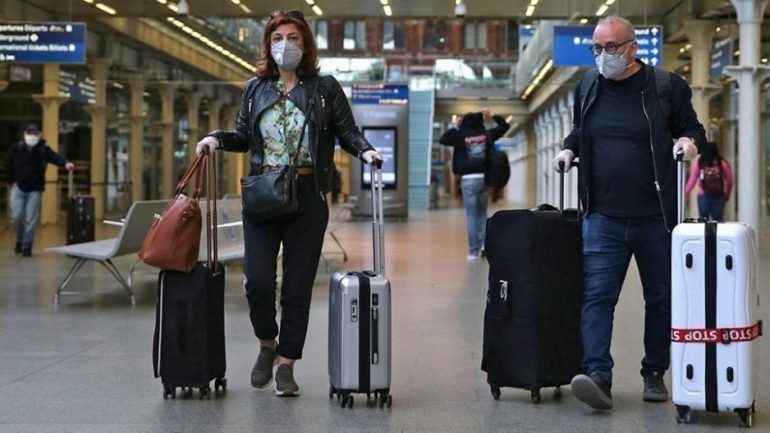Where European aviation took a deep breath, slowly leaving Omicron behind, the tragic developments in Ukraine brought a new surge in demand. In the first week of the Russian invasion, demand for air travel in Europe fell by 8% in domestic bookings and 9% in international bookings, according to the International Air Transport Association (IATA). As expected, the biggest burden is lifted in Eastern Europe where the decline amounted to 14% for the week that began on February 24 compared to the previous one.
Of course, it is not just the legitimate concern raised by the escalation of the conflict. The first immediate consequence was the closure of Ukrainian airspace. The economic sanctions imposed by many governments in response to the Russian invasion have taken the country off the map of international airlines.
Exclusions
At the same time, they "locked" large areas of airspace, excluding Russian aircraft, first the European Union and then the United States. Also, fuels are trading at historically high levels and the murky time horizon of the conflict, but also the fear of repeated wars affects the already fragile demand for air transport.
It is noted that apart from Ukraine and Moldova, where political flights have been zeroed, the drop in bookings in Russia reached 52% in the first week of the conflict.
After the two years of the pandemic that brought air travel to its knees, the weeks leading up to February 24, 2022, demand for air travel was on a dynamic upward trajectory, recovering from the Omicron wave. Reservations for domestic flights approached 90% of 2019 levels and international reservations exceeded 50% of pre-crisis levels, cultivating optimism for the course of 2022, especially from the summer onwards.
Capacity increase
Interestingly, while Ukraine's neighboring countries are seeing a drop in demand from incoming travelers, they have also seen an increase in bookings for outbound flights by refugees from Ukraine. In fact, according to IATA data, some low-cost airlines have reported an increase in capacity from these countries to Western European destinations.
Booking data available from IATA also indicate an increase in demand for travel to countries with a significant expatriate population in Ukraine. For example, bookings have increased for India, Nigeria, Georgia and Morocco with departures from Poland, Hungary and Romania.
Fuel prices skyrocket and losses
The economic blow will be, as it turns out, huge from this war, which came just as the aviation industry went head-to-head after the two-year flattening caused by the coronavirus pandemic, the consequences of which are of course not a thing of the past. . IATA's latest economic forecast for the industry last October forecast a loss of $ 11,6 billion for 2022, with fuel prices at $ 78 a barrel. The cost of fuel corresponds to 20% of the cost for aviation.
Of course, today the price has surpassed all previous ones, breaking the 14-year record, with Brentna reaching almost $ 140 a barrel a week ago. To the increase in fuel costs must be added the fact that many routes are either canceled due to the exclusion of part of the airspace, or the routes that have to be traveled to be extended are extended, thus increasing fuel consumption. This fact, of course, burdens the environmental footprint, the reduction of which the industry had focused on for the past three years.
"The absorption of such a huge blow to costs at a time when industry is struggling to reduce losses as it emerges from its two-year crisis Covid-19 "It's a huge challenge," said Willie Walsh, IATA's director general. "If the price of fuel remains so high, then a product of time, it makes sense that it will be reflected in the performance of airlines."
SOURCE: Financial Postman
